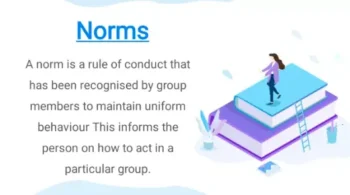Norms, Meaning, Types, Development of Group Norms
“Norms” are the unwritten rules that govern social behaviour and interactions. It informs the person how to act within a particular group or society. They serve as a guide for individuals to understand what is considered acceptable or unacceptable behaviour in a given situation.
